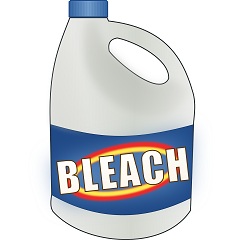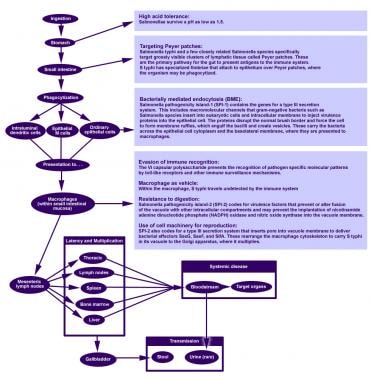The use of a chemical or biocide that kills organisms such as mold chlorine bleach for example is not recommended as a routine practice during mold cleanup. Allow the bleach to sit on the surface for at least five minutes.
 Mold Removal How To Kill Mold With Bleach Borax Vinegar
Mold Removal How To Kill Mold With Bleach Borax Vinegar
Chlorine bleach is often regarded as the answer for removing and halting mold growth and is as such usually the first thing many reach for when cleaning a mold contaminated area.

Bleach mixture for mold. There may be instances however when professional judgment may indicate its use for example when. Allow it to sit in contact with the mildew for 5 minutes then rinse with warm water. A combination of bleach and vinegar is a powerful chemical that is guaranteed to kill if not remove the mold growth in a specified area.
Before you combine bleach and vinegar to kill mold you should know that bleach. Spray onto mold and allow it to set in. The bleach to water ratio for mildew is 14 to 12 cup of.
The answer is yes. Never mix bleach with ammonia or any other cleanser. For killing mold with bleach use a ratio of one cup of bleach per gallon of water ie about 1 part bleach to 10 parts water.
Mix a solution of 12 cup to 1 cup bleach per gallon of water for smooth hard surfaces. For rough surfaces like structural wood or concrete mix 1 12 cups bleach with a gallon of water. On materials like woodbleach does not reach deep into the pores where the mold hides but the water in your bleach-water solution does.
For tougher mold or flat surfaces you can apply the bleach mixture with a sponge or brush. If you have tried other store-bought cleaners and havent had any luck then this may be the perfect home remedy you have been looking for. Does Bleach Kill Mold.
Oxygen bleach cleans stains and kills bacteria too. Children should not be involved in disaster clean-up. Basement Mold Removal - How To Remove Mold Clean your cinder block wall regularly with a solution of water and bleach or mild detergent.
Fill an empty spray bottle with water ¾ of the way and pour in a cup of bleach. The main function of chlorine bleach is. Mold can grow on or fill in the empty spaces and crevices of porous materials so the mold may be difficult or impossible to remove completely1 As I mentioned above bleach has been proven to not be an effective cleaner for mold because it does not completely kill all the mold.
Pour the mixture into a spray bottle. Allow to air dry. Oxygen bleach also kills mold and works well for cleaning mold from surfaces and clothes.
Using a scrub brush or sturdy sponge briskly scrub the affected wall with the bleachwater solution until the mold spots have vanished. Mix 1 cup of bleach into 1 gallon of water. Chlorine bleach is most well-known for its disinfecting properties but that doesnt mean its the best choice for mold.
Rinse the bleached area and let it air dry. Although the active ingredient in bleach is the same active ingredient in mold removal products bleach is sometimes not recommended. It will sanitize disinfect and deodorize whatever you use it on.
Using a scrub brush and a sponge for surfaces you dont want. Once you have removed as much of the mold as possible clean and disinfect the wall with bleach. If surfaces are rough scrub them with a stiff brush.
The Dangers that You Should Know. Spray the mixture onto the surface with black mold and allow it to sit for 5 minutes so it can soak into the mold. Mix one part bleach with three parts of water in a pail.
In fact it can cause more problems. Have your home heating ventilating and air-conditioning system HVAC checked and cleaned by a service professional experienced in mold clean-up before you turn it on. Mix the bleach solution using your gloved hands and apply to the affected area with a sponge or brush.
In a bucket mix the bleach solution. You may need another application if the problem is severe. Apply the solution to non-porous surfaces with mold growth either by using a spray bottle or by using a bucket and a sponge or cloth.
